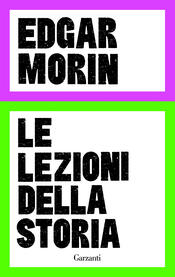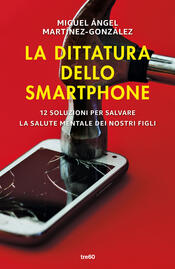

Sinossi
"Ogni organizzazione è una costellazione di 'comunità di pratica'". Con questa idea Wenger getta le fondamenta del pensiero che le organizzazioni dovranno adottare per sopravvivere nel XXI secolo. Comunità di pratica presenta una teoria dell'apprendimento che vede il coinvolgimento nella pratica sociale come il processo fondamentale attraverso cui impariamo e diventiamo quelli che siamo. L'unità primaria di analisi non è né l'individuo né l'istituzione sociale, ma quella "comunità operativa" formata da persone che svolgono delle attività in comune in un certo arco di tempo. Per delineare la dimensione sociale dell'apprendimento, la teoria analizza in modo sistematico l'intersezione tra i problemi di comunità, pratica sociale, significato e identità. Ne emerge un ampio schema di riferimento concettuale per intendere l'apprendimento come processo partecipato e condiviso. Il volume di Etienne Wenger costituisce una lettura fondamentale per tutti coloro che, a diverso livello e con molteplici finalità - studiosi, ricercatori, consulenti, formatori, operatori -, si occupano di processi di apprendimento, di conoscenza dei (e del conoscere nei) contesti lavorativi, di azioni e trasformazioni organizzative.
- ISBN:
- Casa Editrice:
- Pagine: 343
- Data di uscita: 12-07-2006
Recensioni
In this book the author explores the concept of organizational design from two perspectives of practice and identity and explores how those perspectives inform the creation of community within organizations as well as the power dynamics that occur as a result. The author has some intriguing ideas to Leggi tutto
Not an easy read, but worth the effort if you’re interested to learn about learning communities. Take your time to process it and negotiate your own meaning. “Access to information without negotiability serves only to intensify the alienating effects of non-participation.”
I found Wenger's book an extremely useful tool for thinking about learning and teaching. I like the way he has a rich conception of learning, seeing learning as something which happens in many different contexts. His notion of 'communities of practice' is rooted in the idea that people come together Leggi tutto
if you like systems thinking and cybernetics, you'll love this. Otherwise it might be a bit dry or abstract. Wenger provides a lens through which to understand purposeful social configurations which is evocative, poetic, logical and densely interlocking. The central example in the book is that of an o Leggi tutto
Where does learning happen? According to Wenger in “Communities of Practice”, groups of people who share a common concern, have common activities and a shared history. This is very much different from “Learning happens when people get information and do something with it”: Learning in school and fro Leggi tutto
This book will open your eyes to the many ways we all learn in everyday life. It is packed with insight and nuance. I expect it will be very useful to me in both research and working life. My only complaint: Wenger provides too many layers of jargon to describe every single dynamic of Communities of Leggi tutto
Returning to 'Communities of Practice' after a further decade of working in school leadership, I'm struck by the extent to which Wenger's ideas have permeated my own thinking and practice and the extent to which they result in something different and positive. He patiently knits together a brilliant Leggi tutto
This is the definitional guide and structure to considering 'communities of practice' in educational, organizational, institutional, and online settings. Although this is a really good introduction to a specialized subject, there are many ways of considering this way of thinking. This is more a supp Leggi tutto
Although I found the information in this book useful, I didn't enjoy the writing style. In chapter 1, discussing participation and reification the author would go on for paragraphs just listing similes and metaphors for what he was saying. I found this to be drawn out and boring to read, and it cont Leggi tutto
Citazioni
Al momento non ci sono citazioni, inserisci tu la prima!























